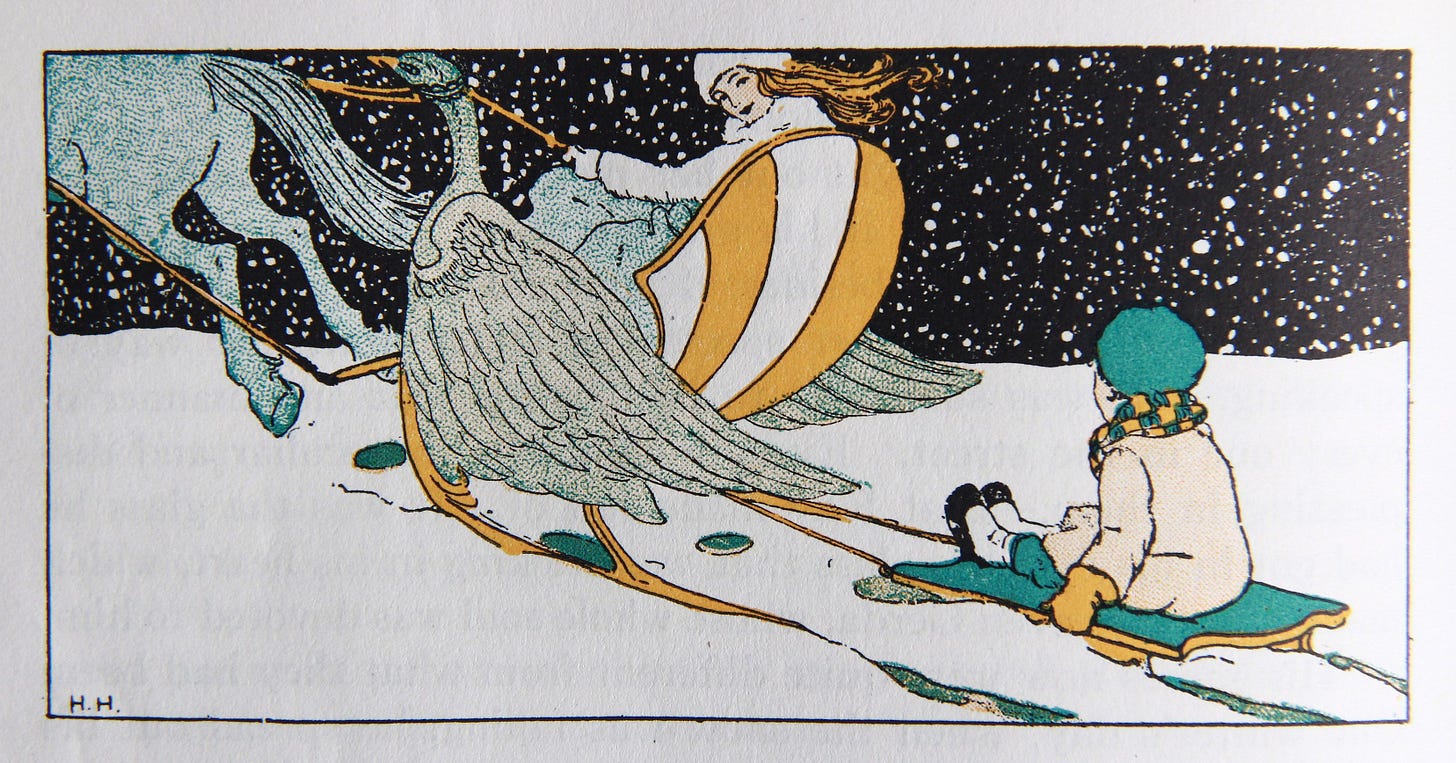
The popular online resource, Wikipedia, defines fantasy as a sub-genre that predominantly “uses magic or other supernatural elements as a main plot element, theme or setting.” The site defines the supernatural, often a key element of fantasy, as “being incapable to be explained by science or the laws of nature, characteristic or relating to ghosts, gods or other supernatural beings, or to appear beyond nature.” Most telling, is that the modern world has placed fantasy, along with science-fiction and the macabre (i.e. horror) within a broader genre known as speculative fiction. The term has late nineteenth century roots, but did not enter the literary community lexicon until the late 1940s by way of one of sci-fi's "Big 3" pioneers: Robert A. Heinlein. Its use was established less than a score-years later by anti-establishment Authors; speculative fiction was initially a term synonymous with science-fiction before other sub-genres were included. Why might this have occurred? Perhaps the Wikipedia entry on the topic provides the best answer, describing the genre as “a broad category of narrative fiction that includes elements, settings and characters created out of imagination and speculation rather than based on reality and everyday life.”
Whatever our feelings about Wikipedia, it is oft-used due to its convenient and widespread accessibility, and thus can be a formidable obstacle towards defining a term or subject. The implication here is that because something is imaginative, it thus has to be something fictitious— and not just this, but something unrealistic: viz. 'unhistorical'. We cannot assume that the average person knows that the imagination is not exclusive to fiction settings, or that what is considered “fantastical” need not be an element or an event that “strays strongly from reality.” If Christians agree to this definition, then how much of our theology has just been placed into the realm of speculative fiction? Indeed, none too few non-believers make this is an argument against the Faith regularly, be they readers of fiction or not.
Perhaps if the point of placing theology into story was to compel-convert, we should be wringing our hands. Yet, our LORD did not do this, the proof being that many people listening to Him could not (would not...?) understand His parables; or when the Pharisees deliberately hardened their hearts against the them. Truly, these actions were spoken of by the prophet Isaiah, and repeated by Jesus when his disciples asked why He spoke in parables:
The point was to hide the Truth about the Kingdom in plain sight,
to compel Psalmic-penitence and Proverbial-conform towards CHRISTian-confidence.
Thom Parham, a screenwriter and movie scholar, points out that Art
“communicates by means of symbol, metaphor, and other tangible images rather than just abstract propositions. The theme of a work of art is suggestive—rather than a message that hits the viewer (or reader) over the head—and it partakes of mystery.”1
So if Story partakes of mystery, how much more so Story that intends to engage and connect the reader to the Mysteries at the core of Christianity, for the Spirit-working purpose of talking a proselyte into belief, leading to Jesus-like immortality and dominion in the Eternal New Kingdom. If Christ allowed His stories to winnow the fields, then how much more should we be strengthened to focus on the matter of Story, while prayerfully allowing God to use Story to work according to His will.
Not only does Fantasy give numinous Mystery a wide berth as no other type of fiction can (or will), it does so in a manner that also hones faithful meditation and imagination, while both in turn serve to edify faith as one wrestles with orthodox theology.
Tolkien and Lewis were passionate about Fantasy (i.e. “fairy-story”)
working hand-in-hand with submissive reason to present Christianity.
Lewis sets the table for us on the relationship of these two towards the end of ‘Bluspels and Flalansferes’:
“For me, reason is the natural organ of truth; but imagination is the organ of meaning. Imagination, producing new metaphors or revivifying old, is not the cause of truth, but its condition.”
And earlier, in that same piece,
“For all of us there are things which we cannot fully understand at all, but of which we can get a faint inkling by means of metaphor.”2
Here, we may, equate Lewis’s invocation of “metaphor” with Story, which by extension, of course, includes Fantasy.
Speaking of Fantasy specifically, Tolkien wrote in his famous essay, ‘On Fairy-Stories’,
“Fantasy is a natural human activity. It certainly does not destroy or even insult Reason; and it does not either blunt the appetite for, nor obscure the perception of, scientific verity. On the contrary. The keener and the clearer is the reason, the better fantasy will it make.”
We next embark upon the journey of theology in "fantasy" fiction, and we will come to explore one of the most alluring of those iconic Mysteries: the Holy Grail. But first, if we must reject the use of “fantasy” as employed by modern convention, then what definition are we to go with? Or should we revitalize a different, old term: the medieval High-History? Or should we rerack the material in the spirit of Anglican-sage, Austin Farrer: as derivative theological poetry? Or form a new one like Lutheran-wizard, Horace Hummel: in modern parlance, metahistory? For the sake of this series we will attempt to subvert the term Fantasy— capitalizing the word for distinction and claiming it for the Kingdom. Once we have done so, can we perceive a sturdy bridge between it and a study of theology? Are there clear examples where the craft relates theological Truth to their readers?
Cited by Gene Veith in ‘Fiction as an Instrument of the Gospel’.
And from Veith: “The creation of a good fantasy writer pays homage to the creation of God and increases our perception and our love for the mysterious reality that God has made up.” Reading Between the Lines: A Christian Guide to Literature




